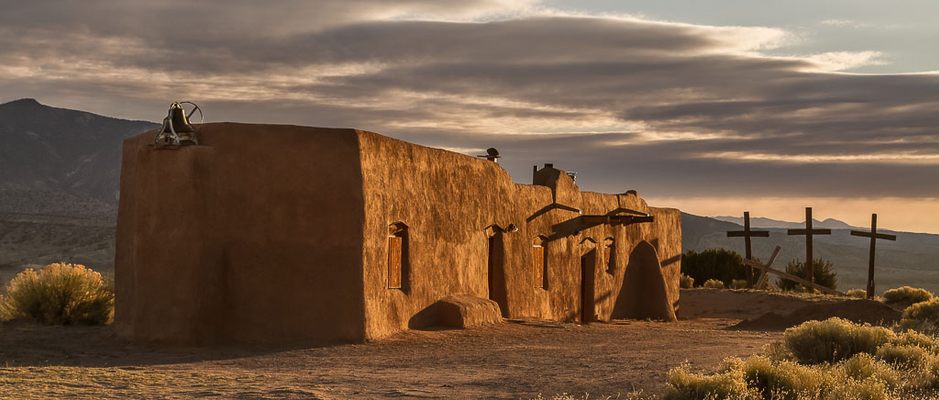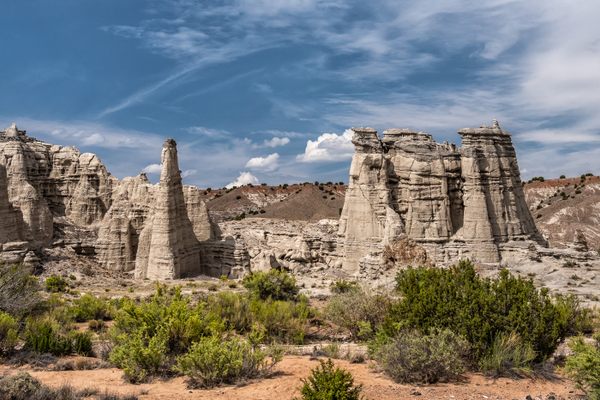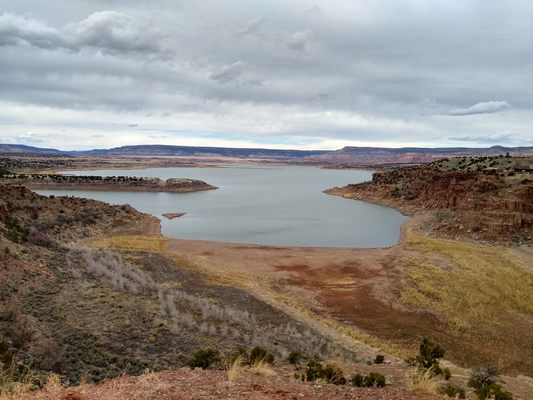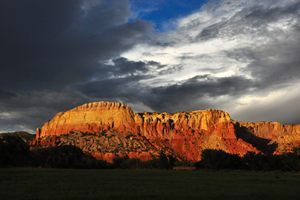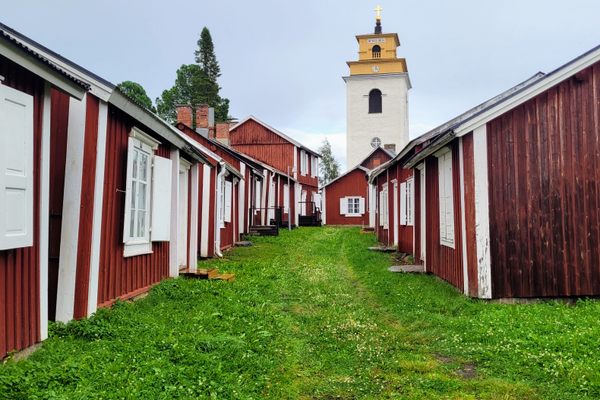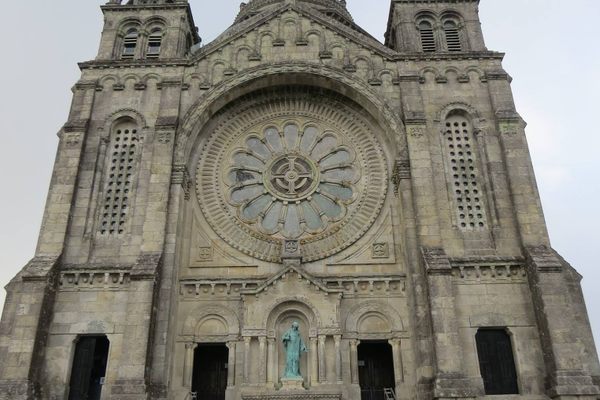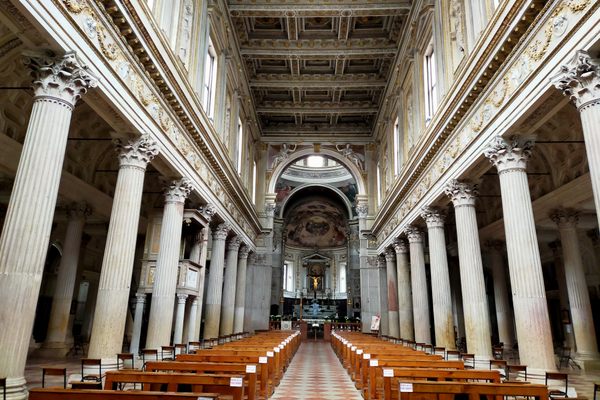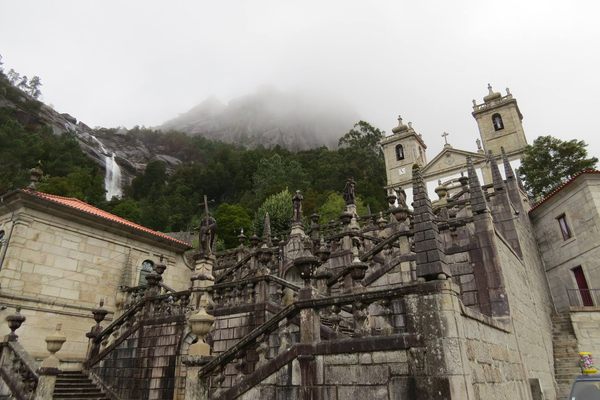About
This picturesque building was a sacred meeting site for the Penitente Brotherhood. Its members (Catholics of Spanish descent) dedicated themselves to community service and memorializing the spirit of the penance and the Passion of Christ.
The Penitente Morada, which was originally built in the 1700s and recently restored, is located up a winding dirt road within the village of Abiquiú. The area has an abundance of cultural, religious, and artistic history complemented by the beauty of the Chama River Valley and the surrounding towering red spires and prominent white and gray cliffs of Plaza Blanca.
The actual village, referred to as the Pueblo de Abiquiú, is a quiet community tucked away just off the highway in the western cliffs of the valley. Spanish settlers began to populate this area in the 1730s. The Pueblo de Abiquiú, which is centered around an adobe church and convento, was built on the site of a long-abandoned pre-Puebloan Tewa Indian village. Its citizens, who are descendants of the original Spanish and Genízaro (detribalized and enslaved Native Americans) inhabitants, currently number less than 250.
Also within the village is the Georgia O'Keeffe Home and Studio, an impressive 5,000-square-foot Spanish Colonial compound with commanding views of the Chama River Valley and its abundant cottonwood trees and green pastures. This home and the surroundings provided O'Keeffe with the insight and vision behind dozens of her compositions. She lived there from the 1940s to shortly before her death in 1986.
Related Tags
Know Before You Go
It is important that you be caring and respectful of the many culturally and religiously important sites you visit in the town and the surrounding area. Please obey all "Private" and "No Trespassing" signs. Abiquiú is about 50 miles north of Santa Fe, New Mexico and is easily reached by driving north on US 84.
You can drive by the Penitente Morada at any time. It's near the Georgia O'Keefe home. A tour of Georgia O’Keeffe’s historic adobe home and studio in the Pueblo de Abiquiu offers a unique appreciation of the environment in which she lived and worked. Reservations are required.
Published
August 20, 2018
